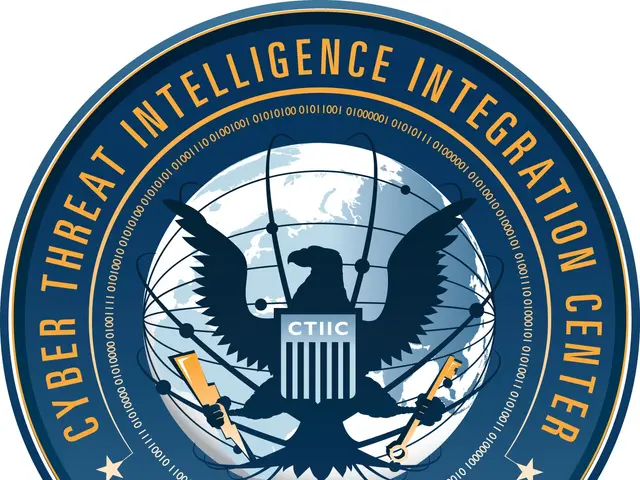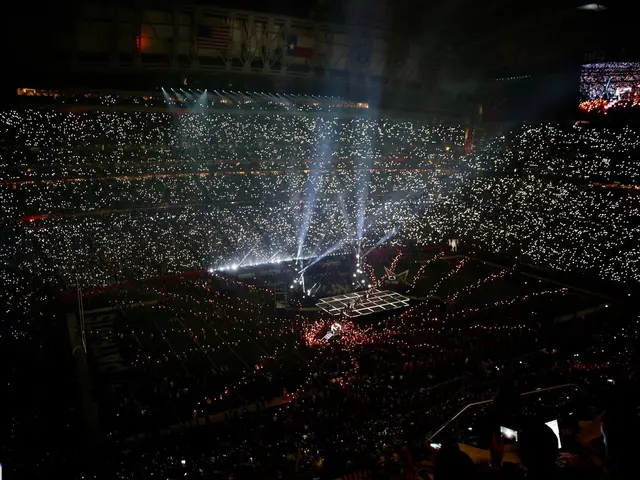Online Casinos Embracing Supervised Digital Gambling, Says New York Times Report
Going with the Tide: Land-Based Casinos Embrace Online Gaming
In a surprising turn of events, brick-and-mortar casinos, once staunch opponents to online gaming, are slowly warming up to the idea. This shift is highlighted in a recent article in the New York Times, although it incorrectly states that online gaming is illegal - the Unlawful Internet Gambling Enforcement Act (UIGEA) only punishes the financing of online accounts.
Fast forward to the current economic landscape, and even big names in the casino industry are starting to show signs of interest. The American Gaming Association (AGA), an association of prominent casino operators like Harrah's Entertainment, MGM Resorts, and Wynn Resorts, took a turnaround this spring, supporting the regulation of the online gaming industry. This change of heart came after negotiations with Representative Barney Frank over his proposed bill, HR 2267, which aimed to regulate the online gaming industry. Following concessions, such as a ban on those who had violated the UIGEA from participating in the U.S. online gaming market, the AGA swung its support behind a regulated industry.
This move marks a significant departure from the AGA's stance in late 2009, when the organization was firmly against the idea of a legalized online gaming industry. Some leading companies, like Harrah's, have been equally supportive, investing heavily in online gaming activities overseas. On the contrary, others, such as Wynn Resorts, have maintained a firm stance against the regulatory idea, expressing concerns about its enforceability. The latest update from Wynn Resorts states that they monitor legislative activity closely but only form judgments after the legislation has been passed.
The catalyst for the industry's change of heart might lie in the rise of online poker. In land-based casinos, poker accounts for just 2% of the total gaming activity. If regulation were limited to online poker, the casino industry would likely view it as less of a threat to their operations. However, the potential for full-fledged online casinos could present challenges.
The revenue potential of online poker is undeniable. According to a study by Poker Analytics, a New York-based consultancy, the leading player in the online industry, PokerStars, brings in over $1 billion annually. When combined with other U.S.-facing operators like Full Tilt Poker, the CEREUS Network, and the Cake Poker Network, online poker revenues could reach up to $5 billion per year, generating substantial revenue through regulation and taxation. However, many of these players, who have been actively courting American poker players during the UIGEA, may be excluded from the current legislation.
As of April 2025, the push for regulation faces several challenges. HR 2267 is yet to come to a vote on the House floor, and with Congress on recess until after the midterm elections in November, the issue will not be addressed until the post-election "lame duck" session. Even if the bill manages to pass in the House, it lacks the taxation legislation covered by HR 2268 and a companion bill ready for a vote in the Senate. Without movement during the "lame duck" session, the bill could expire when the new Congress is seated in January.
In the evolving online casino and poker landscape of the U.S., state-driven regulatory frameworks with limited federal oversight remain the norm. Key players like MGM Resorts, Caesars Entertainment (Harrah’s parent), Wynn Resorts, and PokerStars continue to shape the industry. The AGA generally supports state-level regulation of licensed operators, but its primary focus now is on responsible gambling measures rather than nationwide iGaming expansion.
- Despite initial resistance, land-based casinos, including those operated by Harrah's Entertainment, MGM Resorts, and Wynn Resorts (members of the American Gaming Association), are warming up to the idea of regulating the online gaming industry.
- Contrary to the New York Times' claim, the Unlawful Internet Gambling Enforcement Act (UIGEA) only punishes the financing of online gaming accounts, not the activity itself.
- Online poker, currently accounting for just 2% of total gaming activity in land-based casinos, presents a significant revenue potential, with top players earning over $1 billion annually.
- The American Gaming Association (AGA), led by companies like MGM Resorts and Caesars Entertainment (Harrah’s parent), supports state-level regulation of licensed operators but focuses more on responsible gambling measures.
- The push for the regulation of online casino games and poker faces several challenges, with HR 2267 yet to come to a vote on the House floor and the potential expiry of the bill without movement during the "lame duck" session post-midterm elections in November.








